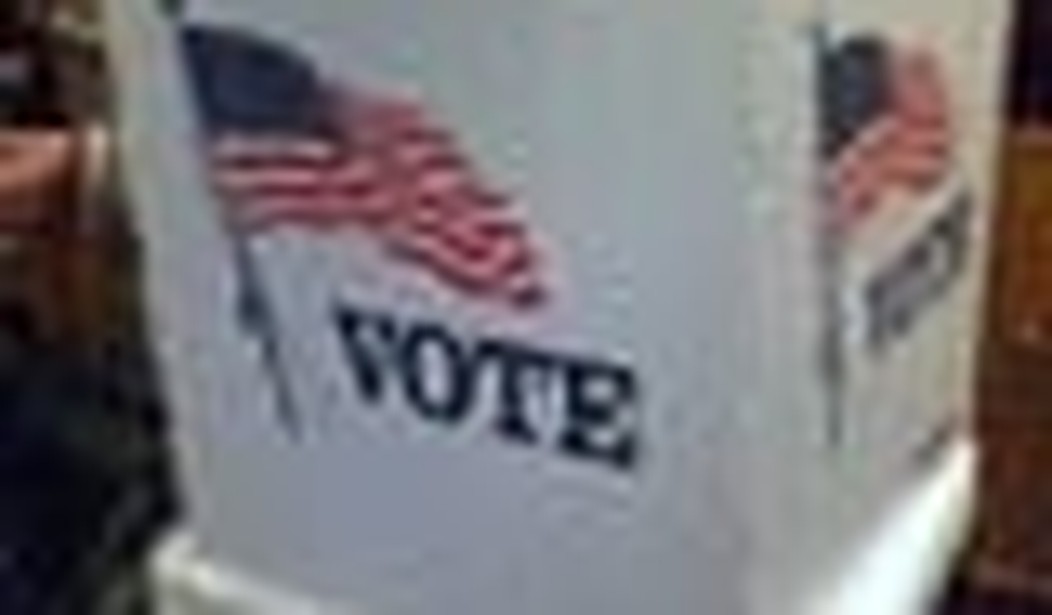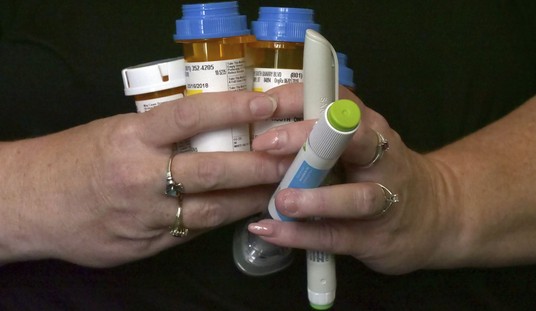Long before the Obama Kool-Aid was mixed and dispensed in massive quantities, African Americans were already heavily under the influence of the Democratic Party, and there may be little Republicans can do about it now.
A young novelist who contributes to Ebony/Jet magazine wrote an article in June about how the GOP can right itself, become more diverse, and be the strong opposition that’s needed to keep the Democrat-dominated government in check. G’Ra Asim presented in stark terms what Republicans are doing wrong in the quest to woo young and minority voters:
Louisiana Gov. Bobby Jindal and RNC Chairman Michael Steele are not going to connect with Millennials on the strength of melanin alone. … [U]ndue emphasis on conservatives of color without a substantive reevaluation of the Republican platform is more likely to strike us as patronizing than pleasing.
Exchange race for technology and we still aren’t going for the bait and switch; Newt Gingrich’s ideas don’t become fresh and vibrant just because they’re on Twitter rather than Meet The Press.
In short, recruiting candidates of color isn’t going to alter the GOP’s image as white, male, and southern. And having the party embrace the technology and information revolution by using electronic media and social networks isn’t going to take the “Old” out of the Grand Old Party.
What the party must do instead, says Asim, is show how Americans of all ethnic backgrounds and cultures can benefit from free market economics and a commitment to personal responsibility, both of which are seen as strong tenets of Republican Party values. Perhaps an even greater challenge for the GOP is Asim’s call for the right to have a “fresher, more cutting-edge” take on positions already espoused by Democrats, essentially presenting the opposition as “on the right track” but stuck in yesteryear.
The latter suggestion sounds a lot like the call of moderate Republicans to be more like Democrats, which many conservatives say simply doesn’t win elections for the GOP. But if all GOP efforts were concentrated entirely on Asim’s first idea, the influence of the Democratic Party on black voters would still be overpowering. Democrats have simply done too exceptional a job convincing African Americans that they’re victims who need to rely on the saving graces of government. As a consequence, blacks tend to vote for the party that attempts to rescue them from the plight in which institutionalized racism is said to have left them.
Until the 1930s, the rescuing party was the Republican Party, because it was the party of Lincoln and emancipation from slavery. But with Franklin Roosevelt’s New Deal and Eleanor Roosevelt personally championing the cause of equality for African Americans, blacks switched to the Democratic Party. In Running on Race, author Jeremy Mayer explains that by 1960, the black vote was back up for grabs, with both John Kennedy and Richard Nixon promising to improve the lives of African Americans. But the black vote went to Kennedy in 1960, and passage of the Civil Rights Act in 1965 solidified the Democrats’ lock on that demographic. By the time Lyndon Johnson won passage of all the Great Society legislation, the Democrats were firmly the new rescuers of African Americans.
Irrespective of race, it seems that nowadays the primary question asked when deciding which party to support is, “What will you do for me (and my downtrodden brethren)?” Looking at the “comments” section of an article about diversifying the GOP, it’s clear that for many African Americans, the answer expected from and assumed of Republicans is: nothing. (One of Asim’s reader’s comments: ” The Republican Party has not done anything in recent time to warrant an AFRICAN AMERICAN caring about it.”) This despite the fact that it was Richard Nixon who signed the first major application of affirmative action into law in 1969 with the Revised Philadelphia Plan, which required federal contractors to meet strict quota goals in the hiring of African Americans. Because Republicans were perceived as doing nothing for blacks, Democrats continued to get the black vote en masse long before there was a viable African American presidential candidate — and despite African Americans sharing socially conservative values with Republicans.
One might think that mixing up the demographics of the GOP is as simple as changing the perception by having Republicans do something for African Americans right now. There are two problems with that. First, it would run contrary to Republican principles. Conservatives are supposed to favor less government action, not more. Second — and perhaps more importantly — throwing government dollars at African American issues doesn’t seem to work.
The Great Society was supposed to eliminate poverty and racial disparities in employment and education. But in 2007, the last year for which statistics are available from the U.S. Census Bureau, 24 percent of all African Americans were living below poverty level. That number is an abysmal 40 percent for black families with no husband present in the household.
In fairness to proponents of government social programs, almost 42 percent of African Americans lived below the poverty line in 1966, the first year for which the U.S. Census Bureau published annual statistics, and government programs may well be the reason for the reduction. It’s just as probable, however, that the dramatic rise in the number of black men incarcerated as a result of the “war on drugs” in the 1980s and 90s also reduced the poverty rate in the African American population, since the U.S. Census Bureau classifies the imprisoned as “people whose poverty status cannot be determined.”
Even if credit for poverty reduction is given to government programs, it doesn’t seem rational that an 18 percent drop in the poverty rate over 40 years justifies permanent allegiance to the Democratic Party. Perhaps it might begin to justify it if Democrats could prove a correlation between the social programs and the reduction, but it’s doubtful they would even attempt to. To do so might weaken the hold they have over the black vote: it’s the ongoing argument of how much is still left to be done — not what’s already been accomplished — that maintains that hold. The Democratic Party’s reason for being is substantially diminished if blacks and other minorities stop thinking of their groups as victims.
Democrats can’t be the rescuing party if few people believe they need to be rescued.
For the Republican Party to capture enough of the black vote in key elections to win, it has to do something about the propensity of many African Americans to believe a) that they need someone to rescue them and b) that Democrats are successful rescuers. And they need to change one or both of these beliefs without appearing unsympathetic or racist.
The order doesn’t get much taller than that. Any takers?









Join the conversation as a VIP Member